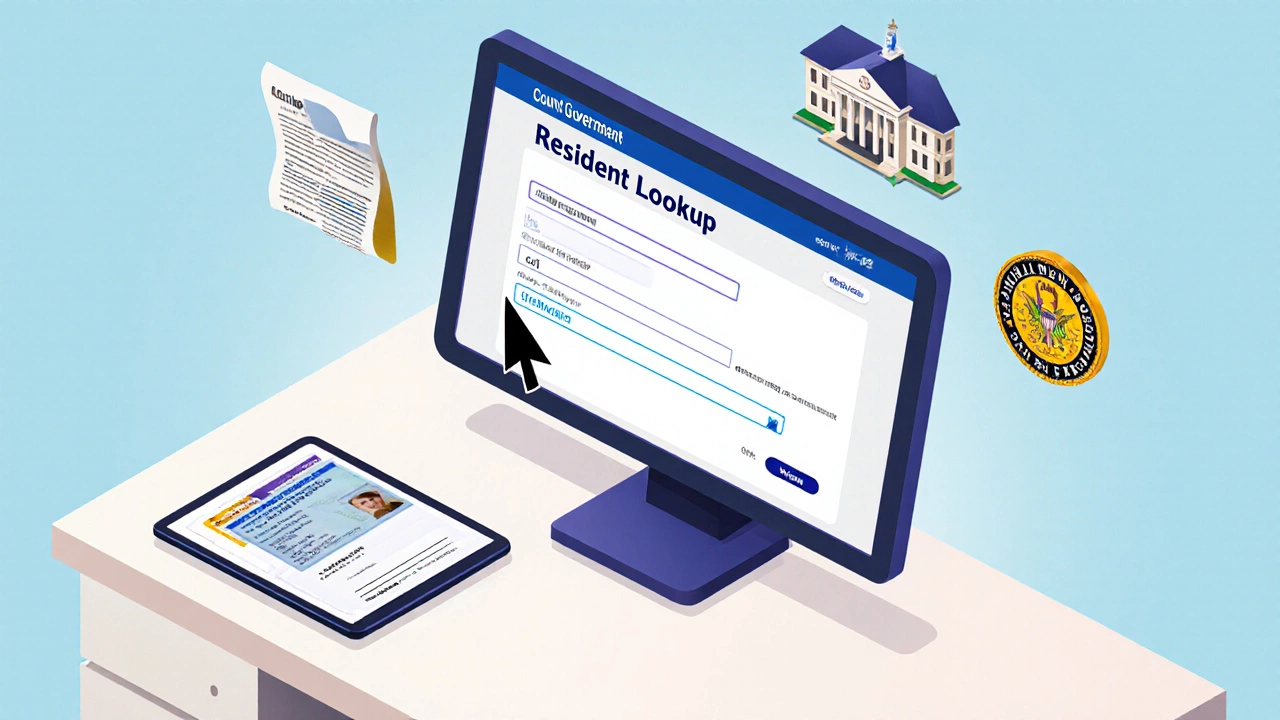How to Verify Your Residency Status for Property Registration

Oct, 15 2025
When you’re buying, selling, or transferring a home, residency status is the legal classification that determines whether you’re considered a resident or non‑resident for tax, voting, and ownership purposes. Knowing this classification can affect property taxes, loan eligibility, and which forms you’ll file with local authorities.
residency status matters because many jurisdictions charge higher rates to non‑residents and limit access to certain financing options. Before you start any paperwork, make sure you have a clear picture of how the state and the county view your living situation.
Why Checking Residency Status Matters in Real Estate
First, property taxes are often calculated differently for residents versus non‑residents. For example, California counties may offer a lower taxable base for primary homeowners compared to investors who own a rental property in the same area. Second, loan programs like FHA or VA assistance usually require the borrower to be a resident of the United States, and some state‑specific loan incentives demand state residency. Finally, certain local ordinances-such as rent‑control limits or historic‑preservation rebates-apply only to residents.
Key Agencies That Hold Your Residency Information
Understanding where to look is half the battle. The most common sources are:
- County Recorder the office that records deeds, liens, and other real‑estate documents for the county
- Property Registration the process of officially documenting ownership and residency details with the local government
- Tax Assessor the agency that evaluates property values and applies tax rates based on residency classifications
- Voter Registration a record of where you are registered to vote, often used as proof of residency for government forms
- Title Company the entity that conducts title searches and ensures the seller’s residency claim matches public records
Step‑by‑Step Guide to Verify Your Residency Status
- Gather primary proof documents. The most accepted items are:
| Document | Issuer | Typical Validity Period | Acceptable For |
|---|---|---|---|
| Utility Bill | Utility Company | 30‑90 days | County Recorder, Tax Assessor |
| Driver’s License | State DMV | 5‑10 years | Title Company, Voter Registration |
| Lease Agreement | Landlord / Property Management | 12 months (or longer) | County Recorder, Tax Assessor |
| Mortgage Statement | Mortgage Lender | Monthly | Title Company, Property Registration |
| Voter Registration Card | County Election Office | Indefinite (until moved) | All agencies |
- Log into your county’s online portal. Most counties provide a “Resident Lookup” tool where you can enter your name and address to see the current classification.
- If the portal shows you as a non‑resident but you believe you qualify, download the residency affidavit form. This form usually asks for:
- Full legal name and Social Security Number
- Current mailing address
- Length of continuous occupancy (minimum 30 days in most states)
- Signature and notarization
- Submit the affidavit along with the proof documents to the County Recorder. Most offices accept scanned PDFs via email or an upload portal.
- Wait for confirmation. Processing times vary: smaller counties may respond within 48hours, while larger metros might take up to two weeks.
After you receive written confirmation, store the notice with your other real‑estate records. It will be useful if you later need to prove residency for a refinance or a property tax appeal.

Typical Pitfalls and How to Avoid Them
Even with the right documents, errors happen. Here are the most common issues and quick fixes:
- Mismatched Addresses: Your utility bill might list a PO Box while the deed shows a street address. Always request a utility statement that includes the physical address.
- Expired Documents: A six‑month‑old electric bill can be rejected. Keep a calendar reminder to request a fresh statement before filing.
- Missing Notarization: Some counties require the affidavit notarized. A quick trip to a local bank or UPS Store will solve this.
- Incorrect Agency: Filing with the city’s planning department instead of the county recorder will delay the process. Double‑check the website URL - it usually ends in .gov and contains “recorder”.
When to Seek Professional Help
If you’re dealing with a multi‑family building, a commercial parcel, or an estate that spans several counties, the paperwork can get tangled. A real‑estate attorney or a licensed title agent can:
- Interpret local residency statutes that differ from one county to another.
- Coordinate between the Tax Assessor and the County Recorder to ensure both records match.
- Prepare a consolidated residency affidavit that covers all properties in one filing, saving time and fees.
Even if you ultimately file yourself, a brief consultation (often just $150) can prevent costly re‑filings later.

Quick Takeaways
- Residency status influences tax rates, loan options, and local benefits.
- Primary proof comes from utility bills, driver’s licenses, lease agreements, mortgage statements, and voter registration cards.
- Use the county’s online resident lookup tool before filing any paperwork.
- Submit a notarized affidavit with supporting documents to the County Recorder.
- Watch for common pitfalls like mismatched addresses and expired documents.
Frequently Asked Questions
How long does it take for a residency status change to appear on my property record?
Most counties update the record within 3‑5 business days after receiving a complete affidavit and supporting documents. Larger jurisdictions may need up to two weeks.
Can I use a mailed utility bill as proof, or does it have to be electronic?
Both formats are acceptable as long as the bill shows your name, physical address, and a recent date. If you submit a scanned copy, make sure it’s clear and legible.
Do I need a new driver’s license if I move within the same state?
Yes, most states require an address update within 30 days of moving. The updated license then serves as a valid proof of residency for property registration.
What if I’m a seasonal homeowner and split time between two states?
The state where you spend more than 183 days in a calendar year is typically considered your primary residence. Provide documentation from that state’s Tax Assessor to support your claim.
Is a notarized affidavit always required?
Not every county mandates notarization, but it removes any doubt about authenticity and speeds up processing. Check your county’s guidelines to be sure.